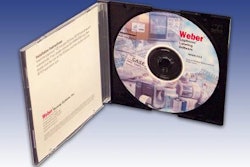
A late-June television news report interviewing San Franciscans at restaurants who were enjoying tap water and gloating about not using plastic bottles caught my attention. After all, I make a living in the packaging community, and water is my beverage of choice.
Bottled water’s portability is particularly appealing to me since I spend more than four hours a day commuting—primarily by public rail transportation. But I digress…
By now you’ve probably heard of San Francisco Mayor Gavin Newsom’s decision, and that Salt Lake City, UT, has banned bottled water for its employees. It’s easy to dismiss these decisions as coming from “tree huggers,” yet with social responsibility and sustainability continuing to gain momentum, concerns about transportation, costs, and environmental issues pertaining to bottled water merit consideration.
Say what you want about buying bottled water rather than drinking tap water, or debate the quality of one water option versus the other, but the fact is that bottled water sales are flowing around the globe. Of course, water bottling provides job opportunities and profits throughout the packaging supply chain. And at those San Francisco establishments who, for now at least, are not serving bottled water.
San Franciscans can sing the praises of their water quality, but other areas around the globe are not as fortunate, making bottled water sometimes a vital necessity.
One issue that did not receive much initial media coverage was recycling. Glass and plastic bottles are recyclable, but are consumers simply putting them in the curbside trash, contributing to landfills? Are recycling facilities not available, or do economic factors limit recycling of these bottles?
And what about those people like myself who, at home and at the office, refill "single-serve" bottles, thereby adding some sustainability into the equation?
There are many factors to consider. I’ll lift my bottle of water in a toast to further discussion on the subject…
Bottled water’s portability is particularly appealing to me since I spend more than four hours a day commuting—primarily by public rail transportation. But I digress…
By now you’ve probably heard of San Francisco Mayor Gavin Newsom’s decision, and that Salt Lake City, UT, has banned bottled water for its employees. It’s easy to dismiss these decisions as coming from “tree huggers,” yet with social responsibility and sustainability continuing to gain momentum, concerns about transportation, costs, and environmental issues pertaining to bottled water merit consideration.
Say what you want about buying bottled water rather than drinking tap water, or debate the quality of one water option versus the other, but the fact is that bottled water sales are flowing around the globe. Of course, water bottling provides job opportunities and profits throughout the packaging supply chain. And at those San Francisco establishments who, for now at least, are not serving bottled water.
San Franciscans can sing the praises of their water quality, but other areas around the globe are not as fortunate, making bottled water sometimes a vital necessity.
One issue that did not receive much initial media coverage was recycling. Glass and plastic bottles are recyclable, but are consumers simply putting them in the curbside trash, contributing to landfills? Are recycling facilities not available, or do economic factors limit recycling of these bottles?
And what about those people like myself who, at home and at the office, refill "single-serve" bottles, thereby adding some sustainability into the equation?
There are many factors to consider. I’ll lift my bottle of water in a toast to further discussion on the subject…


























